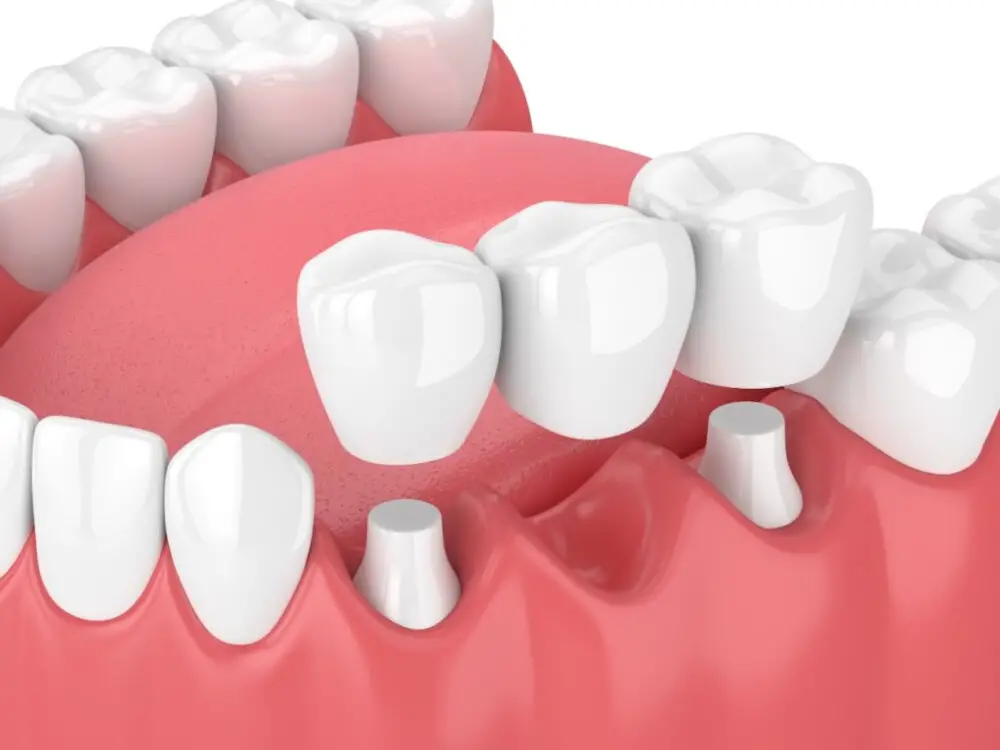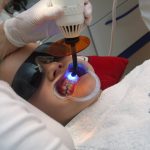Consequences of Not Brushing Your Teeth: What Happens When You Neglect Oral Hygiene

Maintaining good oral hygiene is an essential part of our daily routine. Brushing teeth twice a day, flossing regularly, and visiting the dentist periodically can prevent various oral health issues. However, many people tend to neglect their oral health by skipping brushing or flossing, which can lead to severe consequences. Not brushing your teeth can cause a buildup of plaque and bacteria, leading to tooth decay, gum disease, and other health complications. When you don’t brush your teeth, the bacteria in your mouth start to accumulate, forming a sticky film called plaque. Plaque can quickly harden into tartar, which is difficult to remove and may require professional dental cleaning. Over time, the bacteria in plaque and tartar can cause tooth decay and gum disease, leading to tooth loss and other health problems. Neglecting oral hygiene can also cause bad breath, stained teeth, and a variety of infections that can spread throughout the body. Therefore, it is crucial to take care of your oral health to prevent these consequences and maintain overall health and well-being.
Oral hygiene is essential for maintaining good overall health. Neglecting oral hygiene can lead to numerous health problems, including gum disease, bad breath, tooth decay, and even tooth loss. Poor oral hygiene can also increase the risk of developing serious health conditions such as heart disease, stroke, and diabetes. Regular brushing, flossing, and dental check-ups are crucial for preventing these issues and promoting good oral health. Neglecting oral hygiene can have significant consequences, both in terms of physical health and overall well-being. Therefore, it is vital to prioritize oral hygiene and take the necessary steps to maintain healthy teeth and gums.
Brushing teeth is a crucial aspect of maintaining good oral hygiene, which involves the use of a toothbrush and toothpaste to clean the teeth and gums. It is a process of removing food particles, plaque, and bacteria that accumulate on the surface of the teeth, causing bad breath, tooth decay, and gum diseases. Brushing teeth should be done at least twice a day, preferably after meals, using gentle circular motions to cover all areas of the mouth. Neglecting to brush your teeth can lead to serious consequences, such as cavities, gum disease, and even tooth loss, making it essential to incorporate regular brushing into your daily routine.
Gum Disease

Gum disease, also known as periodontal disease, is a bacterial infection that affects the tissues and bones supporting the teeth. The disease starts with the inflammation of the gums caused by the accumulation of plaque and tartar on the teeth. If left untreated, it can progress to cause damage to the gums and bones, leading to tooth loss. The symptoms of gum disease include swollen and bleeding gums, bad breath, receding gums, and loose teeth. Gum disease is a serious condition that can have a significant impact on a person’s oral health and overall wellbeing. The consequences of not brushing your teeth can be severe, and gum disease is one of the most significant risks. It is important to maintain good oral hygiene habits, such as brushing twice a day, flossing, and visiting the dentist regularly. Neglecting your oral health can lead to the development of gum disease, which can cause pain, discomfort, and tooth loss. Additionally, gum disease has been linked to other health problems, such as heart disease, stroke, and respiratory infections. Therefore, it is crucial to take care of your teeth and gums to prevent the development of gum disease and maintain good overall health.
Gum disease, also known as periodontal disease, is a severe infection of the gums that can lead to tooth loss and other oral health problems. The primary cause of gum disease is the buildup of plaque, a sticky film of bacteria that forms on teeth and gums. When plaque is not removed through proper oral hygiene practices like brushing and flossing, it can harden into tartar, which can only be removed by a dental professional. Over time, the bacteria in plaque and tartar can cause inflammation of the gums, which can progress into periodontitis, a more severe form of gum disease. Other risk factors for gum disease include smoking, poor nutrition, genetics, and certain medical conditions such as diabetes.
Gum disease, also known as periodontal disease, can have severe consequences for your oral health if left untreated. One of the most common symptoms of gum disease is bleeding gums, which can occur while brushing or flossing, or even spontaneously. Additionally, people with gum disease may experience bad breath, swollen or tender gums, receding gums, and even tooth loss. In some cases, gum disease can also lead to infections and abscesses, which can cause pain and discomfort. If you notice any of these symptoms, it’s important to see a dentist or periodontist as soon as possible to prevent further damage to your teeth and gums.
Gum disease, also known as periodontal disease, can have severe consequences if left untreated. The early stage of gum disease is called gingivitis and can cause inflammation, bleeding, and tenderness of the gums. As the disease progresses, it can lead to periodontitis, which causes the gums to pull away from the teeth, creating pockets that can become infected. The bacteria in these pockets can damage the bone and tissue that support the teeth, leading to tooth loss. Additionally, research has shown a link between gum disease and other health issues such as heart disease, stroke, and diabetes. Therefore, neglecting oral hygiene and not brushing your teeth can have serious and far-reaching consequences both for your oral health and overall well-being.
According to recent statistics, gum disease is a prevalent problem in the United States, affecting approximately 47% of adults over the age of 30. This condition, also known as periodontal disease, is caused by the buildup of bacteria in the gums, leading to inflammation, bleeding, and eventually tooth loss. Additionally, gum disease has been linked to other health issues such as heart disease, diabetes, and respiratory problems. It is important to maintain proper oral hygiene to prevent gum disease and its associated consequences. Regular brushing, flossing, and dental visits can help keep your gums healthy and prevent the development of this painful and potentially dangerous condition.
Tooth Decay

Tooth decay is a common dental problem that occurs when the bacteria in your mouth produce acid that erodes your tooth enamel. This can lead to cavities, which are small holes in your teeth that can cause pain and sensitivity. If left untreated, tooth decay can progress and cause more serious dental issues such as gum disease, tooth loss, and even bone loss in the jaw. Additionally, the bacteria responsible for tooth decay can also contribute to bad breath and other oral health problems. To prevent tooth decay, it is essential to practice good oral hygiene. This includes brushing your teeth twice a day with fluoride toothpaste, flossing daily, and visiting your dentist regularly for cleanings and check-ups. In addition to these basic steps, you can also reduce your risk of tooth decay by avoiding sugary foods and drinks, quitting smoking, and using mouthwash to kill bacteria in your mouth. By taking these steps to protect your teeth and gums, you can prevent tooth decay and enjoy better overall oral health.
Tooth decay, also known as dental caries, is a common dental problem that occurs when the bacteria present in the mouth produce acids that erode the tooth enamel. The demineralization of the enamel causes cavities that can grow larger and deeper over time, resulting in a painful infection that can lead to tooth loss. The primary cause of tooth decay is poor oral hygiene, which allows bacteria to accumulate and proliferate in the mouth. Inadequate brushing and flossing, as well as consuming sugars and carbohydrates that feed the bacteria, can increase the risk of tooth decay. Other factors that can contribute to tooth decay include dry mouth, acidic foods and beverages, and genetic susceptibility. Without proper dental care, tooth decay can have serious consequences for your oral health and overall well-being.
Tooth decay is a common dental problem that can cause a range of symptoms. The initial signs of decay may include sensitivity to hot and cold temperatures, as well as sweet and acidic foods. As the decay progresses, it may lead to visible discoloration or dark spots on the teeth. In some cases, a cavity may form, which can cause pain and discomfort when biting or chewing. If left untreated, tooth decay can also cause bad breath, gum inflammation, and eventually tooth loss. Therefore, it is essential to maintain good oral hygiene practices, such as regular brushing and flossing, to prevent tooth decay and its associated symptoms.
Untreated tooth decay can lead to a plethora of serious consequences for your oral health. If left unchecked, the decay can progress and reach the innermost layer of your tooth, causing infections and abscesses that can be extremely painful. In severe cases, the infection can even spread to other parts of your body, such as your heart or brain, causing potentially life-threatening complications. Furthermore, untreated tooth decay can cause tooth loss, which can affect your ability to chew and speak properly, as well as negatively impact your self-esteem. It can also lead to gum disease, which has been linked to other health problems such as diabetes, heart disease, and stroke. Ultimately, neglecting oral hygiene and not brushing your teeth can have serious consequences for both your oral health and overall well-being.
Tooth decay is one of the most prevalent dental issues worldwide, affecting millions of people of all ages. According to the World Health Organization (WHO), approximately 60-90% of school-going children and almost 100% of adults have tooth decay. In the United States, tooth decay is the most common chronic disease in children, with 20% of children aged 5-11 years and 13% of adolescents aged 12-19 years experiencing untreated tooth decay. Furthermore, tooth decay is a significant concern among adults, with over 90% of individuals aged 20-64 years experiencing cavities in their permanent teeth. These statistics are alarming, highlighting the importance of proper oral hygiene practices to prevent tooth decay and maintain good oral health.
Bad Breath

Bad breath, also known as halitosis, is one of the most common consequences of neglecting oral hygiene. It occurs due to the buildup of bacteria in the mouth, which produce unpleasant odors. Poor oral hygiene such as not brushing your teeth regularly, not flossing, and not using mouthwash can lead to the accumulation of food particles and bacteria in the mouth, causing bad breath. Moreover, certain foods such as onions, garlic, and spices can also contribute to bad breath. If bad breath persists even after brushing and flossing, it may be a sign of an underlying dental or medical condition, and it is advisable to consult a dentist or doctor. Not only is bad breath embarrassing, but it can also have a negative impact on your social life and professional relationships. It can cause people to avoid close contact with you, making you feel isolated and self-conscious. Furthermore, bad breath can also be a sign of gum disease, which can lead to tooth loss if left untreated. Therefore, it is crucial to maintain good oral hygiene by brushing your teeth at least twice a day, flossing regularly, and using mouthwash to prevent bad breath and other dental problems. Remember, good dental hygiene doesn’t just keep your teeth healthy; it also promotes your overall health and well-being.
Bad breath, also known as halitosis, is a common problem that affects many individuals. The primary cause of bad breath is poor oral hygiene, which leads to the accumulation of bacteria in the mouth. When food particles are left in the mouth, the bacteria in the mouth break them down, releasing foul-smelling sulfur compounds that cause bad breath. Other causes of bad breath include dry mouth, gum disease, smoking, and certain medical conditions such as sinus infections and liver or kidney problems. Poor oral hygiene is a significant contributor to bad breath, and neglecting oral hygiene practices such as brushing and flossing can lead to more severe dental problems and long-term consequences.
Persistent bad breath, also known as halitosis, can have several negative consequences. Firstly, bad breath can lead to social isolation and embarrassment, as people may avoid close contact with individuals who have foul-smelling breath. Additionally, bad breath may indicate underlying dental or medical issues, such as gum disease, cavities, or sinus infections, which can worsen if left untreated. Poor oral hygiene can also lead to tooth decay, gum disease, and tooth loss, which can negatively impact an individual’s overall health and quality of life. Therefore, it is crucial to maintain proper oral hygiene practices to prevent the consequences of persistent bad breath.
Bad breath, also known as halitosis, is a common oral health problem that affects millions of people worldwide. According to statistics, approximately 25% of the global population suffers from chronic bad breath. Among adults, it is estimated that one in four people experience bad breath regularly, while in the United States alone, up to 80 million people are affected by halitosis. The prevalence of bad breath is higher among older adults, with about 60% of people over 65 experiencing this condition. Poor oral hygiene, gum disease, dry mouth, and certain medical conditions are some of the common causes of bad breath. If left untreated or neglected, bad breath can have serious consequences on a person’s social life, self-esteem, and overall health.
Health Risks

Neglecting oral hygiene can have serious health risks that extend beyond just having bad breath or yellowing teeth. Poor oral health has been linked to various health issues, including heart disease, diabetes, respiratory infections, and even dementia. The accumulation of bacteria in the mouth can lead to inflammation, which can spread to other parts of the body and cause damage to vital organs like the heart and lungs. In fact, studies have shown that people with gum disease are twice as likely to suffer from heart disease compared to those with healthy gums. Therefore, it is essential to maintain proper oral hygiene to reduce the risk of developing these health problems. Another health risk associated with neglecting oral hygiene is tooth decay, which can lead to tooth loss and affect your ability to eat and speak properly. Tooth decay occurs when the bacteria in the mouth produce acid that gradually breaks down the tooth enamel. If left untreated, the decay can reach the inner layers of the tooth, causing pain and infection. This can also lead to abscesses, which can be extremely painful and require costly dental procedures to treat. Therefore, it is crucial to brush and floss regularly, as well as visit the dentist for routine check-ups and cleanings to prevent tooth decay and other oral health problems.
The link between oral health and overall health is one that is often overlooked, but it is crucial to understand the impact that poor oral hygiene can have on the body. Neglecting oral hygiene can lead to a buildup of harmful bacteria in the mouth, which can then spread throughout the body and contribute to a variety of health issues. For example, studies have shown that poor oral health is linked to an increased risk of heart disease, stroke, and diabetes. Additionally, gum disease has been linked to an increased risk of premature birth and low birth weight in pregnant women. Therefore, it is important to prioritize oral hygiene and maintain regular dental checkups to ensure that your overall health is not compromised.
Neglecting oral hygiene can lead to severe health consequences. Poor oral hygiene can cause plaque buildup, which can lead to gum disease and tooth decay. Gum disease can cause inflammation and bleeding of the gums, and can also lead to tooth loss. Additionally, poor oral hygiene can also have a negative impact on overall health. Studies have shown a link between gum disease and other health issues such as heart disease, stroke, and diabetes. Therefore, it is crucial to maintain good oral hygiene practices such as brushing and flossing regularly to prevent these health risks.
Poor oral hygiene can lead to a range of health problems, and the statistics on the prevalence of these risks are concerning. According to the World Health Organization, oral diseases affect nearly 3.5 billion people worldwide, with untreated tooth decay impacting almost half of the world’s population. In the United States, over 90% of adults have had at least one cavity, and 47.2% of adults over the age of 30 have some form of gum disease. These health risks are not limited to the mouth; research has found links between poor oral health and conditions such as heart disease, stroke, and diabetes. These statistics highlight the importance of maintaining good oral hygiene practices to reduce the risk of serious health complications.
Oral hygiene is a crucial aspect of our daily routine that we often overlook. The benefits of maintaining good oral hygiene go beyond just having fresh breath and a bright smile. It prevents gum disease, tooth decay, and bad breath. Neglecting oral hygiene can lead to severe consequences such as periodontitis, which can result in tooth loss and even affect overall health. Poor oral hygiene can also cause cavities, which can be painful and require extensive dental work. In addition, neglecting oral hygiene can increase the risk of heart disease, diabetes, and respiratory infections. Therefore, it is crucial to establish a daily oral hygiene routine and visit the dentist regularly to maintain good oral health.
Maintaining good oral hygiene is crucial for overall health and well-being. Neglecting oral care can lead to a multitude of consequences, such as bad breath, tooth decay, gum disease, and more. To prevent these issues, it’s important to establish a daily routine that includes brushing at least twice a day, flossing, and using mouthwash. It’s also important to schedule regular dental checkups and cleanings to catch any potential problems early on. By taking care of your oral health, you can avoid the pain and expense of more serious dental issues down the road. So, make a commitment to your oral hygiene and commit to a healthy smile!
Neglecting oral hygiene can lead to serious consequences that can affect your overall health. Not brushing your teeth regularly can cause the buildup of plaque and tartar, leading to cavities, gum disease, and bad breath. In addition, the bacteria in your mouth can enter your bloodstream, increasing the risk of heart disease, stroke, and other health problems. Poor oral hygiene can also lead to tooth loss, which can affect your ability to chew and speak properly. To avoid these consequences, it’s important to maintain good oral hygiene habits, such as brushing twice a day, flossing daily, and visiting the dentist regularly.
Conclusion

In conclusion, neglecting oral hygiene by not brushing your teeth can have severe consequences on your overall health. The buildup of bacteria and plaque can lead to tooth decay, gum disease, and even tooth loss. Furthermore, poor oral health has been linked to various systemic diseases such as heart disease, diabetes, and respiratory infections. It is crucial to prioritize oral hygiene by brushing your teeth twice a day, flossing regularly, and visiting the dentist for routine checkups. By taking care of your oral health, you are not only preserving your teeth and gums, but also safeguarding your overall well-being.






